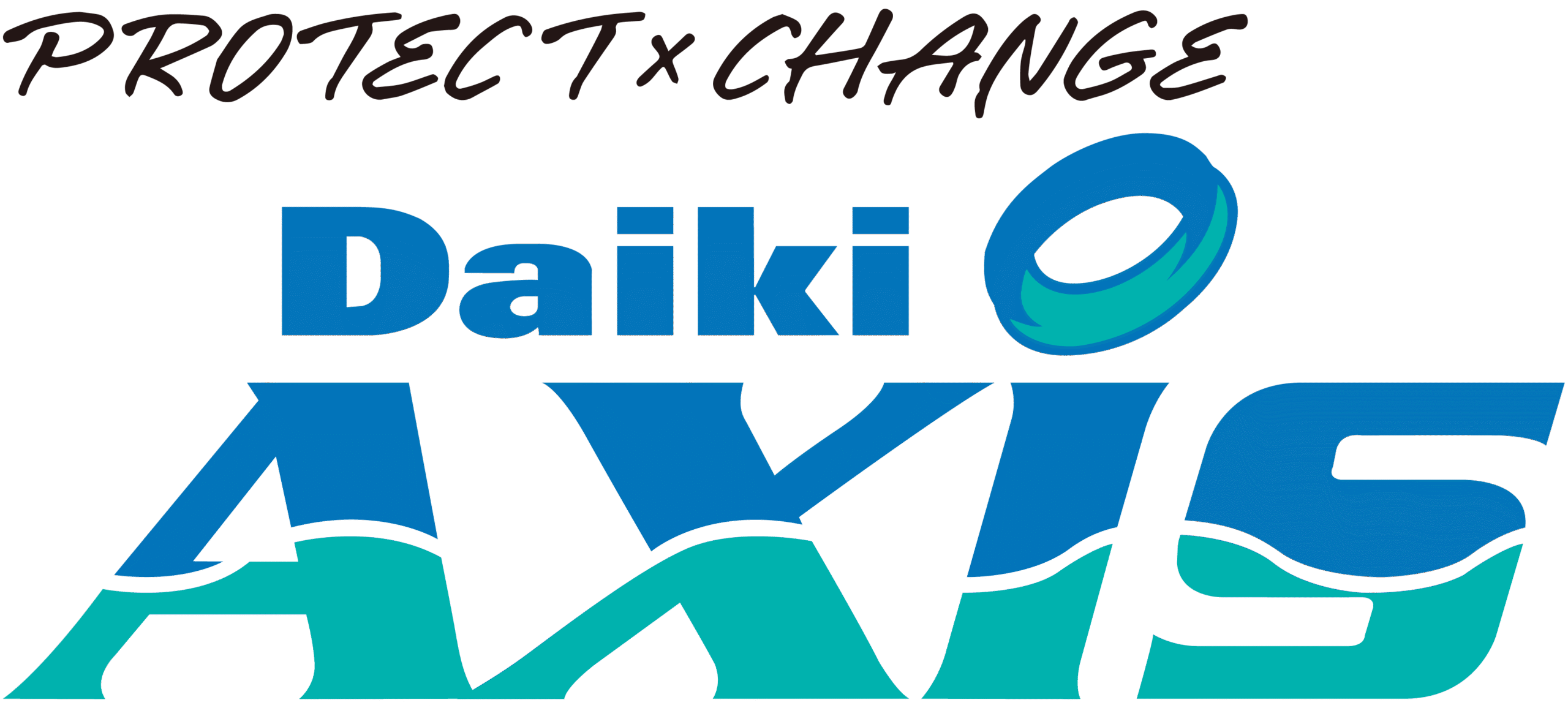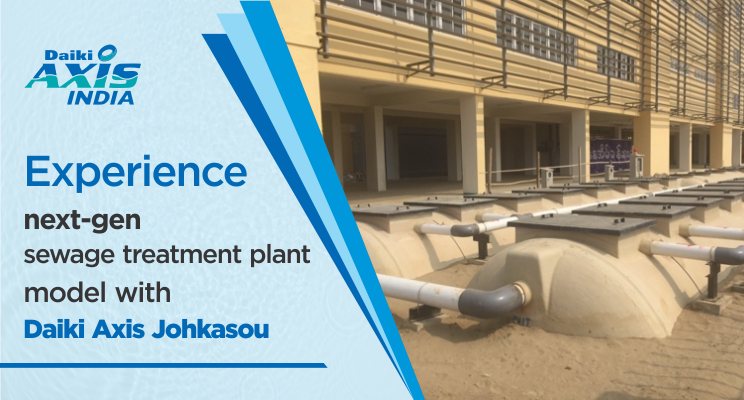Sewage Treatment Plant (STP) Models
- Centralized STPs: Large-scale facilities serving urban areas; often expensive and complex to manage.
- Decentralized STPs: Small-scale, localized systems suitable for rural or semi-urban areas.
Current Challenges in Wastewater Management
- Growing Population: Increased demand for sewage infrastructure due to urbanization.
- Strained Infrastructure: Existing systems are inadequate to handle the rising wastewater load.
- Industrial Pollution: Untreated industrial waste pollutes water sources.
Johkasou Technology by Daiki Axis India
- Japanese Innovation: Advanced, compact, and efficient wastewater treatment technology.
- Decentralized Approach: Ideal for regions without access to centralized sewage systems.
- Environmentally Friendly: Reduces pollution and recycles treated water for reuse.
Potential Impact in India
- Improved Water Quality: Helps mitigate industrial and urban wastewater contamination.
- Scalability: Adaptable to urban and rural settings.
- Sustainability: Promotes a cleaner environment and better resource management.
Johkasou technology is a step toward revolutionizing wastewater treatment in India, addressing both urban and rural needs effectively.
The Current Scenario of Wastewater Treatment in India
- Rapid Urbanization:
- India’s cities are growing rapidly, leading to an increased volume of sewage.
- Untreated Wastewater:
- Over 72% of wastewater in Indian cities remains untreated (NITI Aayog estimate).
- Leads to severe contamination of rivers, lakes, and groundwater.
- Health Hazards:
- Untreated sewage causes the spread of waterborne diseases.
- Household Practices:
- Lack of proper sewage systems leads to direct waste discharge into open drains or water bodies.
- Industrial Impact:
- Industries often release untreated or partially treated effluents into water sources.
- Environmental and Public Health Consequences:
- Pollution creates a cycle affecting both the environment and public health.
The Problems Plaguing India’s Sewage System
- Infrastructural Deficiencies: Many Indian cities are equipped with outdated or insufficient sewage infrastructure. The lack of comprehensive sewage networks means that a significant portion of wastewater is left untreated or inadequately treated before being released into the environment.
- High Levels of Pollution: The high volume of industrial waste and untreated domestic sewage significantly pollutes rivers and lakes. Contaminants like heavy metals, chemicals, and pathogens enter water bodies, leading to environmental degradation and health hazards.
- Water Scarcity: Inefficient wastewater treatment practices lead to the wastage of valuable water resources. With increasing water scarcity in various regions, the need for effective recycling and reuse becomes even more pressing.
- Health Impacts: Polluted water sources are a breeding ground for diseases such as cholera, dysentery, and hepatitis. The health implications of consuming or coming into contact with contaminated water are severe and widespread.
The Solution: Daiki Axis India’s Johkasou Technology
- Decentralized Treatment
- Treats wastewater near its source (residential, commercial, or industrial).
- Eliminates reliance on extensive sewer networks.
- Reduces risk of untreated waste entering the environment.
- Efficient Water Recycling
- Enables recycling of treated wastewater for irrigation, landscaping, and industrial processes.
- Reduces demand for fresh water.
- Promotes sustainable water management.
- Advanced Treatment Processes
- Combines biological treatment, filtration, and disinfection.
- Ensures treated water meets high-quality standards.
- Minimizes environmental impact.
- Scalability and Flexibility
- Modular design adaptable to diverse settings and requirements.
- Suitable for small communities or large industrial facilities.
- Environmental Benefits
- Reduces pollution in water bodies.
- Supports restoration of rivers, lakes, and groundwater.
- Enhances overall ecosystem health.
The Broader Impact on Water Bodies
- Improved Water Quality: Johkasou technology helps in cleaning rivers and lakes, contributing to a healthier environment.
- Ecological Restoration: Reduction in pollution levels restores the ecological balance of water bodies, supporting biodiversity.
- Enhanced Recreational Opportunities: Cleaner water bodies open up opportunities for recreational activities, benefiting local communities.
- Sustainable Water Management: Restored water sources can be used for drinking, agriculture, and industrial purposes, ensuring long-term water availability.
- Support for Future Generations: Promotes a resilient and sustainable water management system, ensuring access to clean and safe water for future generations.
Conclusion
To address the critical issues of wastewater management in India, embracing innovative solutions like Johkasou technology is essential. Daiki Axis India’s commitment to decentralized treatment and efficient water recycling represents a forward-thinking approach that can make a substantial difference in how India manages its sewage.
The integration of Johkasou technology into India’s wastewater management systems offers a pathway to cleaner, more sustainable water management. By treating and recycling wastewater on-site, we can mitigate pollution, conserve water resources, and enhance public health. As India continues to navigate the complexities of urbanization and environmental conservation, the Johkasou sewage treatment plant model provides a promising solution to one of the most pressing challenges of our time.
Contact us at https://daikiaxis.in/contact-us/
Read more relevant blogs here: https://daikiaxis.in/blog/
#DaikiAxis #Johkasou #sewage #water #STP #DaikiSTP #SewageTreatmentPlantModel
#PackagedSTP #JohkasouPrice #STPCompanies #STPPlant #SewageTreatmentPlantinDelhi #STPPlantManufactures #SewageTreatmentPlantManufacturesinIndia #johkasouSTP

